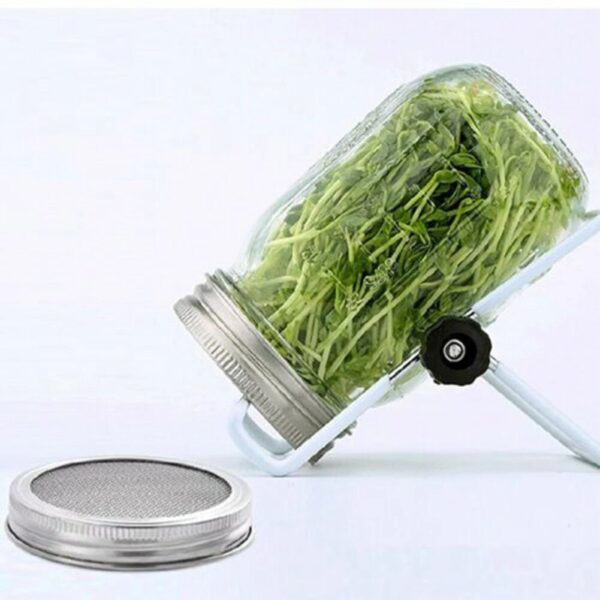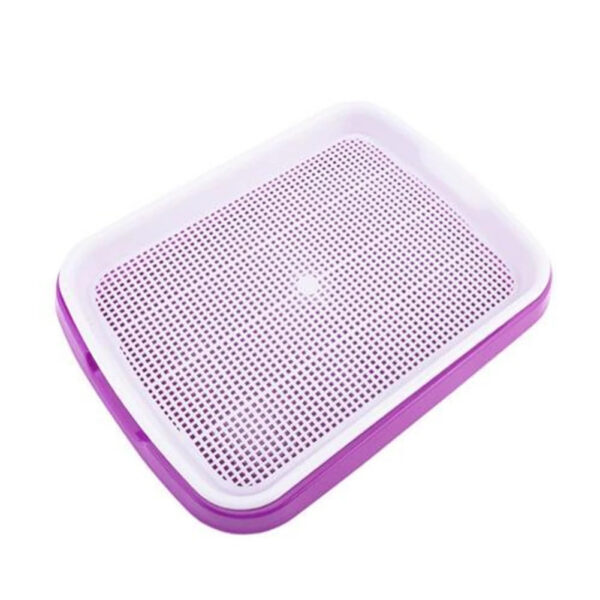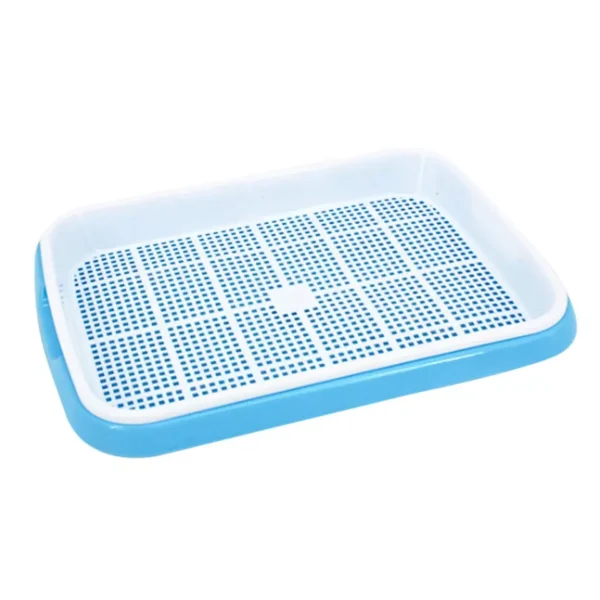Alfalfa sprouts are a nutritious and flavourful addition to any dish. From salads to sandwiches.
The tiny sprouts are packed with proteins, vitamins and minerals. This makes them a healthy choice for those looking to enrich their diet.
Growing alfalfa sprouts at home is surprisingly easy and only requires a few simple steps.
In this guide, we'll show you how to grow fresh and delicious alfalfa sprouts yourself, so you can enjoy their many benefits right from your own kitchen.
Table of contents
ToggleWhy grow alfalfa sprouts (alpha sprouts) at home?
Growing your own sprouts ensures that they are free from chemicals and pesticides. Plus, home-grown sprouts are often fresher and more nutritious than those you can buy in the shops.
Let's not forget the satisfaction of watching something grow from a tiny seed to a full sprout. It's ready to eat!
Pros and cons of alfalfa sprouts (alpha sprouts)
| Advantage | Disadvantages |
|---|---|
| Nutrient-rich | Bacterial risk |
| Digestive aid | Allergy |
| Low calorie content | Drug interaction |
| Heart health | Pregnancy restriction |
| Easy to include | Flavour and texture |
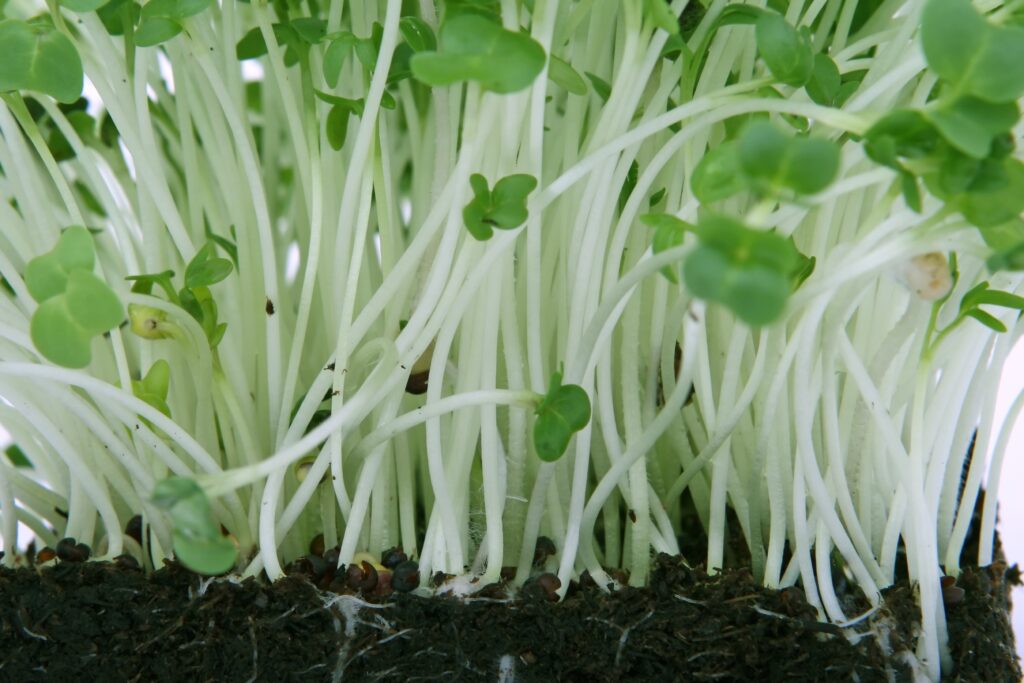
Is it healthy to eat alfalfa sprouts (alfalfa sprouts)
Yes, eating alfalfa sprouts is healthy as they are rich in nutrients and have several health benefits.
Alfalfa sprouts are a good source of vitamins. These are vitamins A, C, E and K, as well as minerals such as calcium, potassium, iron and magnesium. They contain a good amount of protein and dietary fibre, as well as antioxidants that can help fight inflammation and support overall health.
Here are some of the health benefits of including alfalfa sprouts in your diet:
Nutrient-rich: Alfalfa sprouts are low in calories but high in nutrients, making them an excellent addition to any diet, especially for those looking to increase their intake of vitamins and minerals without adding too many calories.
Antioxidant content: They contain antioxidants, which can help neutralise harmful free radicals in the body, potentially lowering the risk of certain chronic diseases and promoting overall health.
Heart Health: Consuming alfalfa sprouts may contribute to improved heart health by reducing cholesterol levels. Studies have shown that alfalfa can help lower bad LDL cholesterol, potentially due to its high saponin content.
Digestive health: High fibre content in alfalfa sprouts can support digestion and help prevent constipation.
Blood sugar regulation: Alfalfa sprouts can also have a positive effect on blood sugar regulation, making them a useful food for people with diabetes or those looking to maintain stable blood sugar levels.
However, it is important to properly handle and prepare alfalfa sprouts to avoid the risk of foodborne illnesses, such as those caused by bacteria like E. coli and Salmonella.
It is recommended to buy fresh sprouts from reliable sources, store them properly and rinse them thoroughly before use. Some people choose to lightly blanch the sprouts before eating to further reduce the risk of bacterial contamination, although this may reduce some of the nutritional benefits.
As with any food, it's best to include alfalfa sprouts as part of a varied and balanced diet for the greatest health benefits.
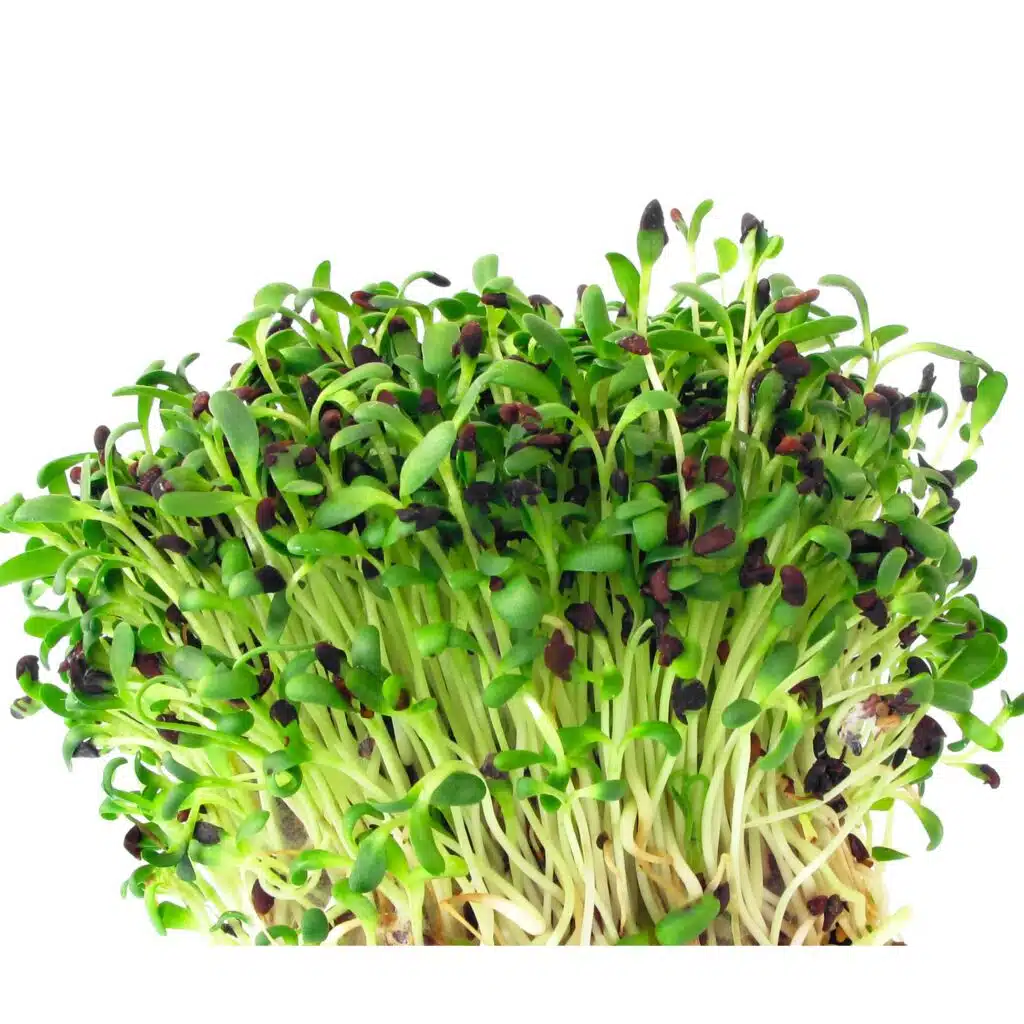
Are alpha sprouts and alfalfa sprouts the same?
In fact, there is no difference between alfalfa sprouts and alfalfa sprouts. They're just two different names for the same product. The name 'alfalfa' is typically used in certain parts of the world, such as the UK and Australia, while 'alfalfa' is the name most commonly used in the US and many other countries. Both terms refer to the young sprouts of the alfalfa plant (Medicago sativa), which is part of the pea family.
Alfalfa sprouts are known for their nutritional benefits. They are rich in vitamins (such as vitamins A, C, E, and K), minerals (including iron, potassium, calcium and magnesium), proteins and antioxidants.
Sprouts are popular in a variety of dishes, from salads and sandwiches to wraps, because they add a nutritional boost.
What is the difference between alfalfa sprouts and microgreens?
The difference between alfalfa sprouts and microgreens lies primarily in their growth stage, cultivation method and application.
Growth stage:
- Lucerne sprouts are the early shoots of alfalfa seeds, typically harvested a few days after germination, when they have just developed their first cotyledons.
- Micro greens refers to a broader category of young green plants from various species including herbs, salads and vegetables that are harvested when they are slightly older than sprouts, typically between one and three weeks old, just after the first set of true leaves develop.
Cultivation method:
- Lucerne sprouts are often grown in water (hydroponically) or on a moist surface without the use of soil, where they are only allowed to develop their root threads and sprouting leaves.
- Micro greens are typically grown in soil or a soil-like medium, which allows them to develop a more robust root system and larger leaves. Microgreens often require more light to grow, compared to sprouts, which can be grown in darkness or with minimal light.
Usage and nutritional value:
- Lucerne sprouts are often used as a topping on sandwiches, salads and in wraps to add a crunchy texture and a mild, nutty flavour. They are rich in vitamins, minerals and antioxidants, but their small size means you need to eat a large amount for significant nutritional benefits.
- Micro greens offer a broader flavour palette, depending on the plant, and can range from mild to strong and spicy. They are also nutritionally dense, often with higher concentrations of vitamins, minerals and antioxidants per serving compared to their full-grown counterparts. Microgreens are used in a wide range of culinary contexts, from garnishes to fresh salads and as an ingredient in hot dishes.
In summary, the primary difference between alfalfa sprouts and microgreens is their growth stage and cultivation method, which affects their texture, flavour and nutritional value. Microgreens offer a greater variety and often a higher nutritional value per serving, while alfalfa sprouts are known for their ease of cultivation and mild flavour.
Choice of alfalfa seeds
The first step in growing alfalfa sprouts is choosing the right ones alfalfa seeds. For the best results, it is recommended to choose organic seeds, such as those found at plantelys.dk. These seeds are free of pesticides and guarantee healthy sprouts.
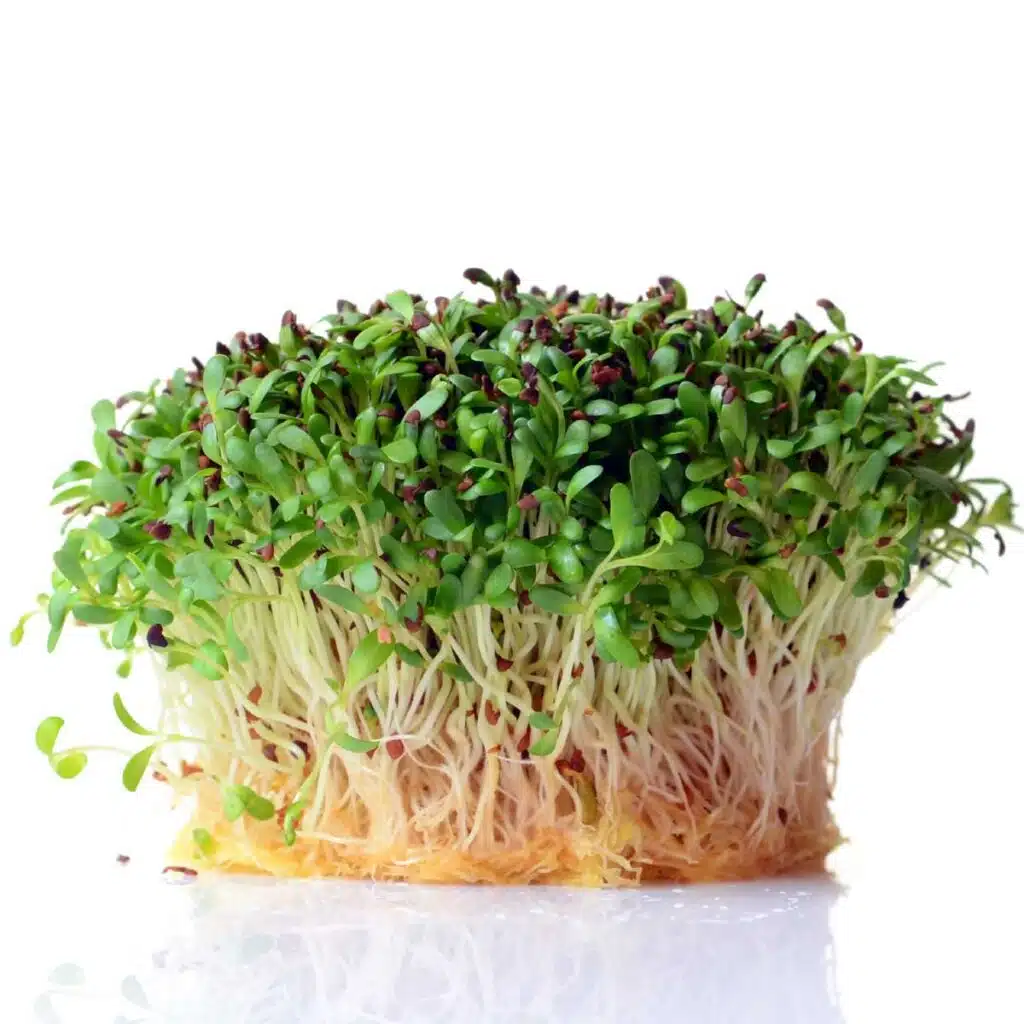
Preparation
Before you begin the process of cultivation, make sure you have the necessary equipment.
Two of the most popular methods for growing sprouts involve either a sprouting tray or a sprouting jar.
Germination tray: One sprout hill is designed specifically for growing sprouts. It has a mesh layer that allows easy drainage of water, preventing standing water that can cause mould or mildew.
Sprout glass: One seedling glass is another popular method, especially for those who are just starting to grow sprouts.
It's a simple glass container with a mesh lid that allows water to drain while the sprouts remain inside the glass.
How to grow alfalfa sprouts step-by-step
1. Preparation of alfalfa seeds
- Start by rinsing your alfalfa seeds under cold water.
- Place them in your chosen container (sprout hill or seedling glass) and cover them with about 2-3 times the amount of water.
- Leave them to soak for 6-8 hours or overnight.
2. Drainage
- After they have soaked, drain any excess water from the seeds.
- If you use a germination tray.
Follow the manufacturer's instructions. If using a germination jar, simply turn the jar upside down to drain the water, while the mesh lid prevents the seeds from falling out.
3. Rinse and drain (repeat daily)
- At least once a day (preferably morning and evening) rinse your seeds with fresh cold water and then drain excess water.
- It helps prevent mould and bacterial growth. It ensures that the seeds remain moist, which is necessary for germination.
4. Location
- Place your sprouting tray or sprouting glass in a place with indirect light. A kitchen cupboard or counter out of direct sunlight is ideal.
5. Observation
- After a few days you will start to see little sprouts appear. Alfalfa sprouts are typically ready for harvest on the 4th or 5th day, but this can vary depending on conditions.
6. Harvest and storage
- When the sprouts have reached the desired length, they are ready to be harvested. Rinse them one last time, drain and let them dry a bit before storing them in the fridge. They should be stored in an airtight container and will be good to eat for up to a week.
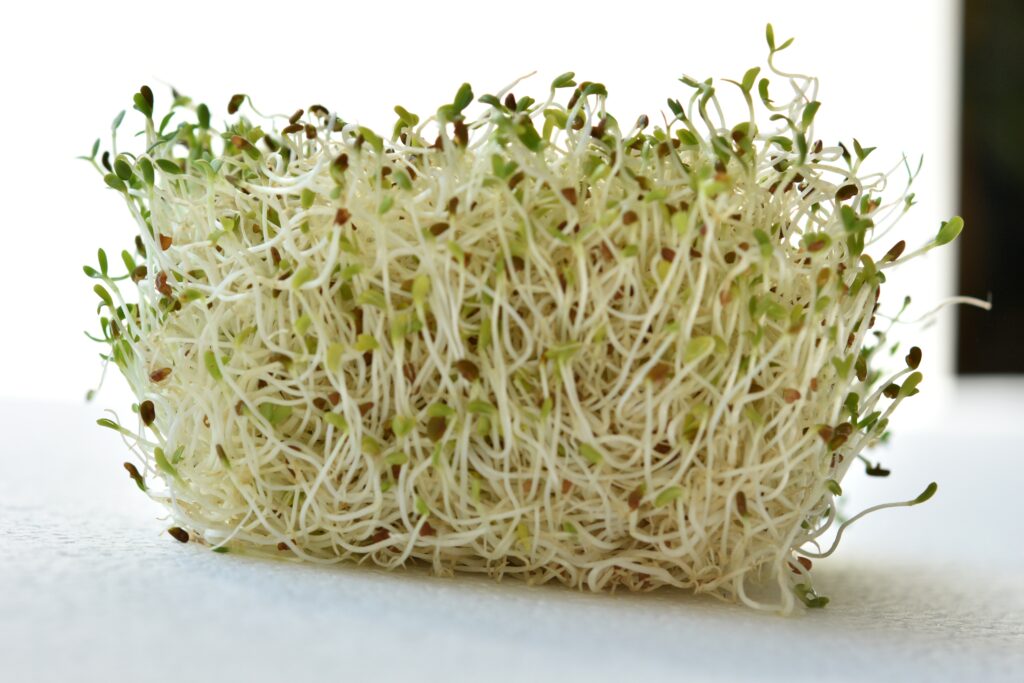
Grow your alfalfa sprouts in containers
Growing alfalfa sprouts in containers is a simple and satisfying process that can be done inside your own kitchen.
Here's a step-by-step guide to growing your own alfalfa sprouts:
Equipment and Materials
- Lucerne seeds (alfalfa seeds): Buy high quality, organic germination seeds to ensure the health and purity of your sprouts.
- Sprouting container: Use a glass jar with a germination lid or cheesecloth and an elastic band to cover the opening. You can also use a germination tray.
- Water: Clean, fresh water for rinsing and soaking the seeds.
Course of action
Cleaning: Make sure to wash your germination container well to avoid bacteria.
Soaking: Take 1-2 tablespoons of alfalfa seeds and rinse them well under running water. Then place the seeds in your germination container and cover them with plenty of water.
Leave them to soak overnight or for at least 8-12 hours. This helps to wake up the seeds and start the germination process.Flushing: After soaking, drain the water from the container. Rinse the seeds thoroughly with fresh water at least twice a day. After each rinse, drain excess water well.
It is important to keep the seeds moist, but not wet, to prevent mould and bacterial growth.Silence: Place the container in an area with indirect light at room temperature. Direct sunlight is not necessary and can actually harm the delicate sprouts. Indirect light will promote photosynthesis and the growth of green sprouts.
Observation and Maintenance: Continue to rinse and drain the seeds twice a day. After a few days, you'll start to see the sprouts grow.
Harvest: Alfalfa sprouts are typically ready to harvest within 5-7 days when they are 3-5 cm long. Once ready, give them a final rinse to remove any seed shells and let them dry slightly to minimise the risk of bacterial growth.
Storage: Store fresh sprouts in an airtight container in the fridge. They will stay fresh for 5-7 days.
Tips
- Hygiene: Always remember to keep it clean to avoid bacteria.
- Water quality: Always use clean, fresh water to rinse your sprouts.
- Air circulation: Ensure good air circulation around the sprouts to promote healthy growth and prevent mould.
By following these steps, you can easily grow your own nutritious alfalfa sprouts at home.
-
1L Sprout jar with lid and metal net for sprout cultivation
- kr. 295,00
- Add to basket
Item no.: 28102 -
Sprouting tray for growing microgreens purple/white
- kr. 45,95
- Add to basket
Item no.: 28096 -
Sprouting tray set for growing microgreens Blue/white 33.7×24.5x5cm
- kr. 45,95
- Add to basket
Item no.: 28091
Recipes and use of alfalfa sprouts
Lucerne sprouts are extremely versatile and can be added to a variety of dishes.
Try them in salads, wraps, sandwiches or as a garnish on your favourite dishes.
Conclusion
Growing alfalfa sprouts at home is an easy and rewarding process. With minimal effort, you can enjoy fresh, organic sprouts that not only taste great, but are also packed with nutritional benefits. With the right guidance and equipment from sources such as plantelys.dk, even beginners can grow healthy and delicious alfalfa sprouts at home.
FAQ - Frequently asked questions
Lucerne sprouts are nutritious, rich in vitamins, minerals, proteins and antioxidants that support heart health and digestion. They are low in calories, making them ideal for weight management. However, they should be washed thoroughly to avoid the risk of foodborne illness.
Yes, you can eat alfalfa sprouts! They're great in salads or in your sandwich to make it fresher and healthier. Just remember to wash them well first so they are safe to eat.
With proper storage, alfalfa sprouts can stay fresh for up to a week
Yes, the method can be used for most sprouts, but some seeds may require a longer soaking time.
No, actually indirect light is best for growing alfalfa sprouts.
Most alfalfa sprouts are ready on the 4th or 5th day, but you can harvest them when they reach your desired length.
Read more about alfalfa sprouts here



